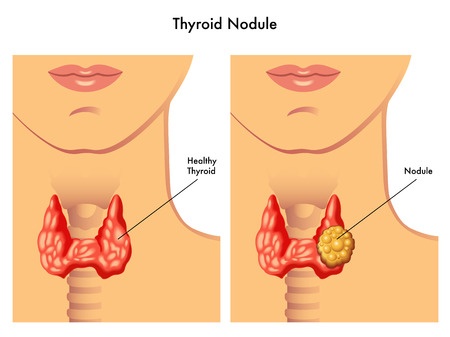Byetta Thyroid Cancer

Research suggests that Byetta might increase a patient’s risk for thyroid cancer. In 2009, U.S. health regulators asked the drug’s manufacturer to undertake studies in order to evaluate this and other possible Byetta side effects.
Attorneys Investigating Byetta Thyroid Cancer Claims
The attorneys at Bernstein Liebhard LLP are investigating the potential link between Byetta and thyroid cancer. If you or a loved one developed this disease while using Byetta to treat Type 2 diabetes, please call (888) 994-5118 to learn more about your possible legal options.
What is Thyroid Cancer?
The thyroid is a gland located in the neck that, among other things, produces hormones that regulate the way the body uses energy. Thyroid cancer is one of the more uncommon cancers, though it occurs more frequently in women than in men. It is also one of the most treatable cancers, and the prognosis for most people who have thyroid cancer is good. Thyroid cancer is treated with surgery and often with radioactive iodine.
Symptoms associated with thyroid cancer include:
- A lump or swelling in your neck.
- Pain in the neck and sometimes the ears.
- Trouble swallowing.
- Trouble breathing or have constant wheezing.
- Hoarseness
- Frequent cough that is not related to a cold.
There are several types of thyroid cancer:
- Anaplastic thyroid cancer: The rarest form, affecting less than 1% of thyroid cancer patients. However, it is the most aggressive type and the most most likely to cause life-threatening complications.
- Papillary thyroid cancer: This is the most common form, and affects 86% of people with the disease. It is slow growing and is usually treated before it causes life-threatening complications.
- Follicular thyroid cancer: This accounts for about 9% of thyroid cancer cases. It is slow-growing and usually curable.
- Medullary thyroid cancer: Very rare, slow-growing type of thyroid cancer. It may be hereditary.
FDA Orders Studies of Byetta Side Effects
In 2009, the FDA announced that it was requiring Byetta’s manufacturer to conduct six post-marketing studies in order to investigate the drug’s side effects, including a possible link to thyroid cancer.
Studies Suggest Link Between Byetta and Thyroid Cancer
A study published in 2011 by the journal Gastroenterology revealed that 30 cases of thyroid cancer involving Byetta patients had been reported to the U.S. Food & Drug Administration (FDA) from 2004 to 2009. The analysis suggested that the drug could increase a patient’s risk for thyroid cancer by 4.7-fold.
A 2012 study published in Experimental Diabetes Research found that Byetta increased the number of cancerous cells in the thyroids of mice.
Do I Qualify to File a Byetta Lawsuit?
Byetta patients may qualify to file a lawsuit if they were diagnosed with thyroid cancer while using this Type 2 diabetes medication. To obtain a free, no-obligation review of your case, please contact Bernstein Liebhard LLP today at (888) 994-5118.
- WebMD (2016) “Thyroid Cancer” http://www.webmd.com/cancer/tc/thyroid-cancer-topic-overview
- FDA (2009) “Byetta Safety Update for Healthcare Professionals” http://www.fda.gov/Drugs/DrugSafety/PostmarketDrugSafetyInformationforPatientsandProviders/DrugSafetyInformationforHeathcareProfessionals/ucm190406.htm
- Gastroenterology (2011) “Pancreatitis, Pancreatic, and Thyroid Cancer With Glucagon-Like Peptide-1–Based Therapies” http://www.gastrojournal.org/article/S0016-5085%2811%2900172-7/fulltext
- Experimental Diabetes Research (2012) “A Review on the Association between Glucagon-Like Peptide-1 Receptor Agonists and Thyroid Cancer” http://www.hindawi.com/journals/jdr/2012/924168/
Get the latest news and litigation updates about this case by following us on Facebook. Click the "Like" button below.
Follow Us


